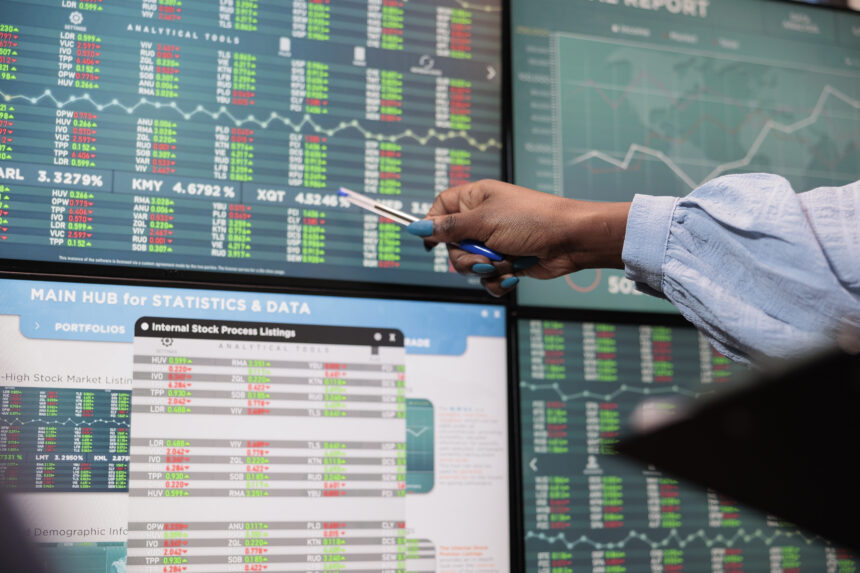Forex trading, or foreign exchange trading, has gained immense popularity in recent years. The decentralized nature of the forex market, coupled with its high liquidity and 24-hour availability, makes it an attractive choice for traders worldwide. However, engaging in forex trading without proper knowledge and practice can be a risky endeavor. This is where demo accounts come into play, serving as an invaluable tool for traders to practice and improve their skills without risking real money.
What is a demo account?
A demo account, also known as a practice account or paper trading account, is a simulated trading environment offered by forex brokers. It provides traders with a virtual balance of funds to execute trades in real-time market conditions. The prices and charts in a demo account are identical to those in a live trading account, allowing traders to experience the dynamics of the market without any financial risk.
Why are demo accounts important?
- Risk-free learning: Forex trading involves understanding complex concepts, market dynamics, and the use of various trading tools. Demo accounts offer traders a risk-free environment to learn and experiment with these aspects. They provide an opportunity to understand how different trading strategies work, analyze market trends, and identify potential entry and exit points.
- Familiarize with trading platforms: Forex brokers usually offer different trading platforms, each with its own set of features and functionalities. Demo accounts allow traders to familiarize themselves with the trading platform of their chosen broker. By practicing on a demo account, traders can learn how to navigate the platform, place trades, set stop-loss and take-profit levels, and use technical indicators effectively.
- Test trading strategies: Developing a profitable trading strategy requires time, practice, and evaluation. Demo accounts enable traders to test their strategies in a risk-free environment. By executing trades based on their strategies and analyzing the results, traders can identify strengths and weaknesses in their approach. They can refine their strategies and make necessary adjustments without incurring any financial losses.
- Emotional control and discipline: Emotions play a significant role in trading. Fear and greed can cloud judgment and lead to impulsive decision-making. Demo accounts help traders develop emotional control and discipline by simulating the psychological aspects of trading. Traders can learn to manage their emotions and make rational decisions without the fear of losing real money. This is especially crucial for novice traders who need to build confidence in their abilities.
- Market research and analysis: Demo accounts allow traders to conduct market research and analysis without financial risk. Traders can explore different currency pairs, study their historical price movements, and analyze market indicators and patterns. This helps in understanding the behavior of various currency pairs and developing informed trading strategies.
- Real-time trading practice: Demo accounts provide a real-time trading experience, allowing traders to execute trades and monitor their performance as if they were trading with real money. This practice helps traders develop their skills in executing trades swiftly, managing open positions, and reacting to market fluctuations effectively.
Limitations of demo accounts:
While demo accounts are an excellent tool for practice and skill improvement, it’s important to recognize their limitations:
- Psychological differences: Trading with virtual funds in a demo account does not replicate the psychological aspects of trading with real money. The emotional impact of gains and losses can be significantly different when real money is at stake.
- Slippage and execution speed: Demo accounts may not accurately reflect the slippage and execution speed experienced in live trading. Market conditions, such as high volatility or low liquidity, can affect trade execution differently in a live environment.
- Lack of real market impact: In demo accounts, trades do not impact the real market. The absence of real market participants and their reactions can influence price movements and liquidity.
Therefore, while demo accounts are an excellent learning and practice tool, transitioning to live trading should be done gradually and with caution. Traders should start with small amounts of capital to apply their skills and strategies in a real trading environment.
In conclusion, demo accounts play a crucial role in forex trading by providing traders with a risk-free environment to practice and improve their skills. They allow traders to learn trading concepts, test strategies, gain familiarity with trading platforms, and develop emotional control. Demo accounts are an invaluable stepping stone for traders to gain confidence and prepare themselves for live trading. However, traders must be aware of the limitations of demo accounts and gradually transition to trading with real money while applying their acquired knowledge and skills.










